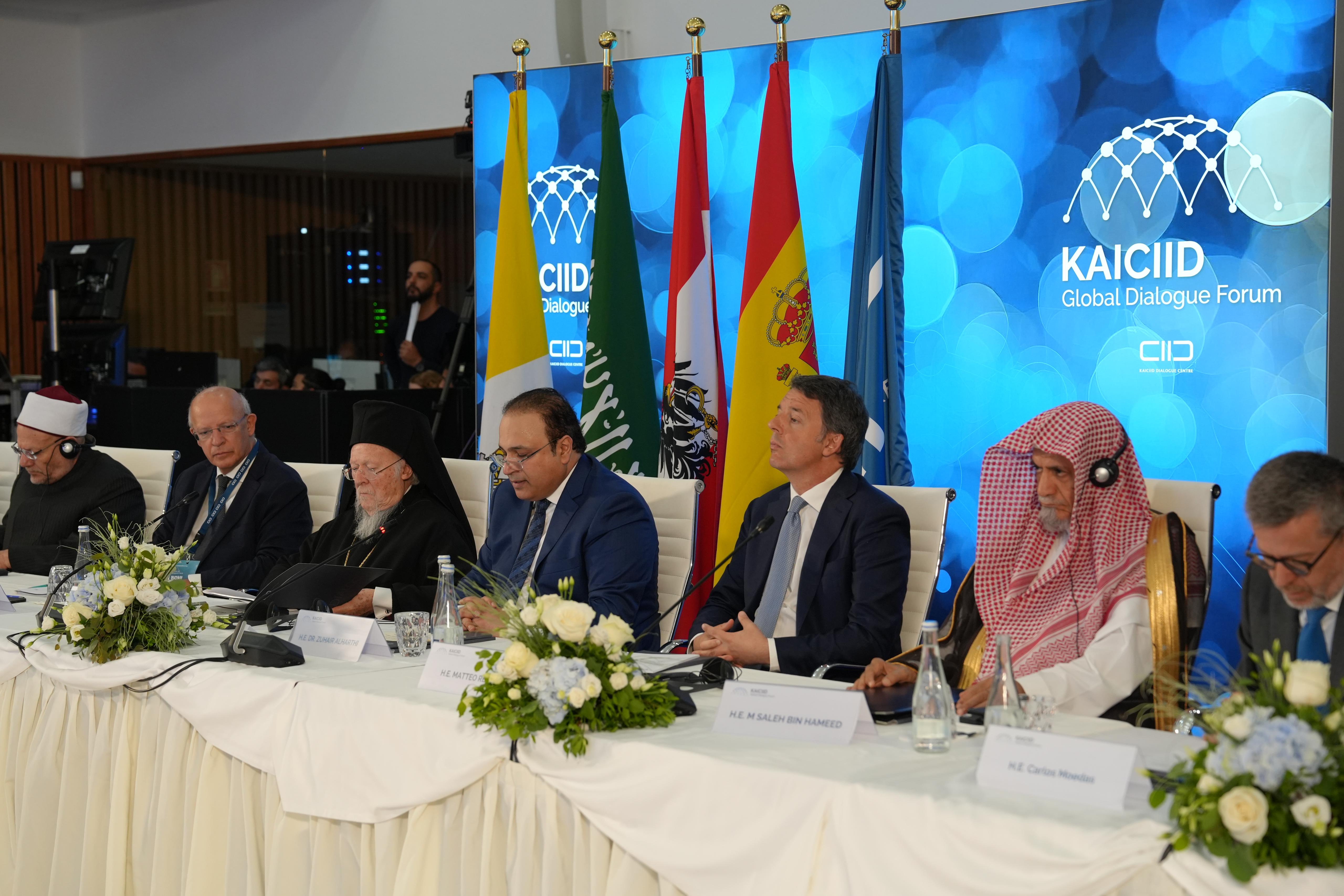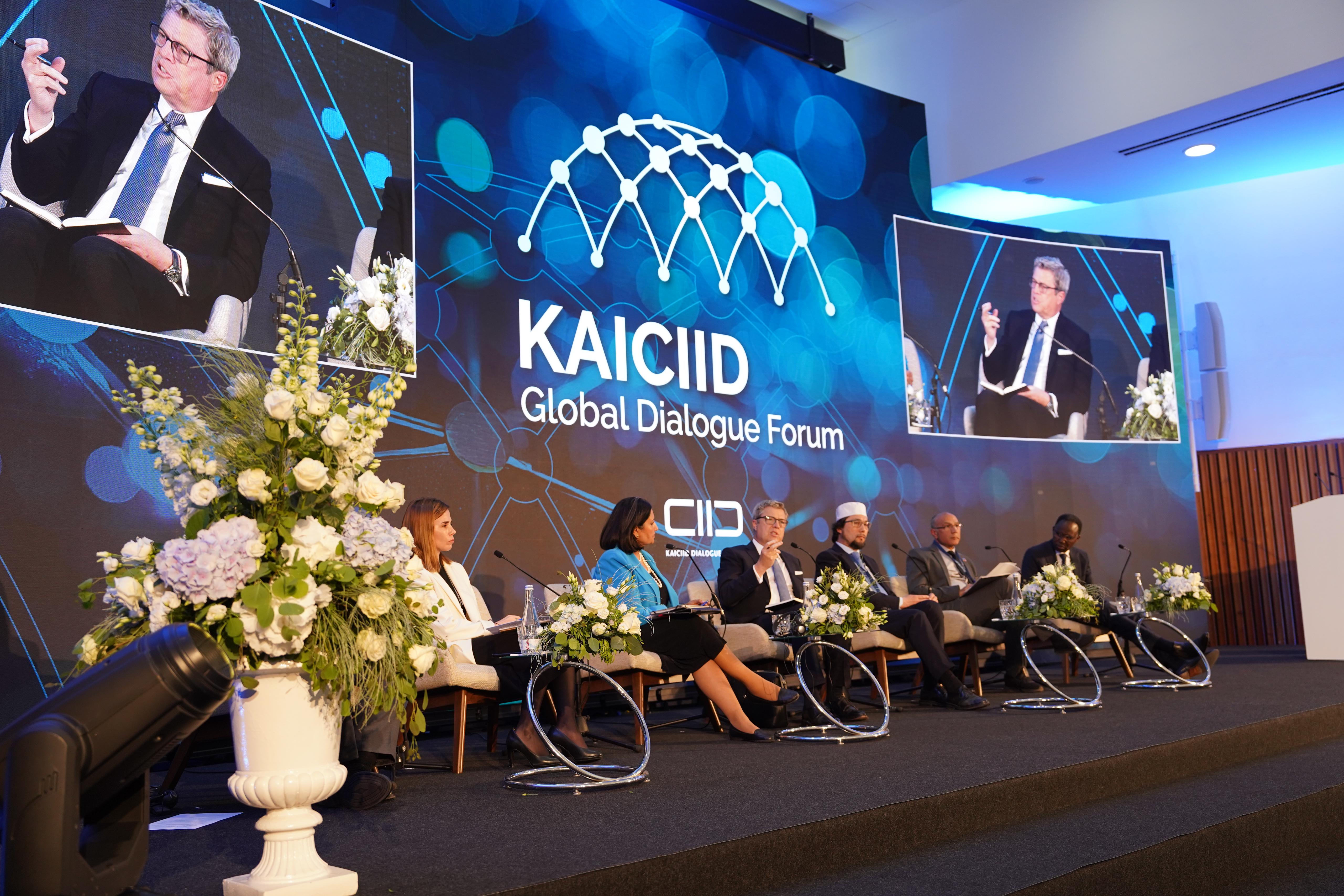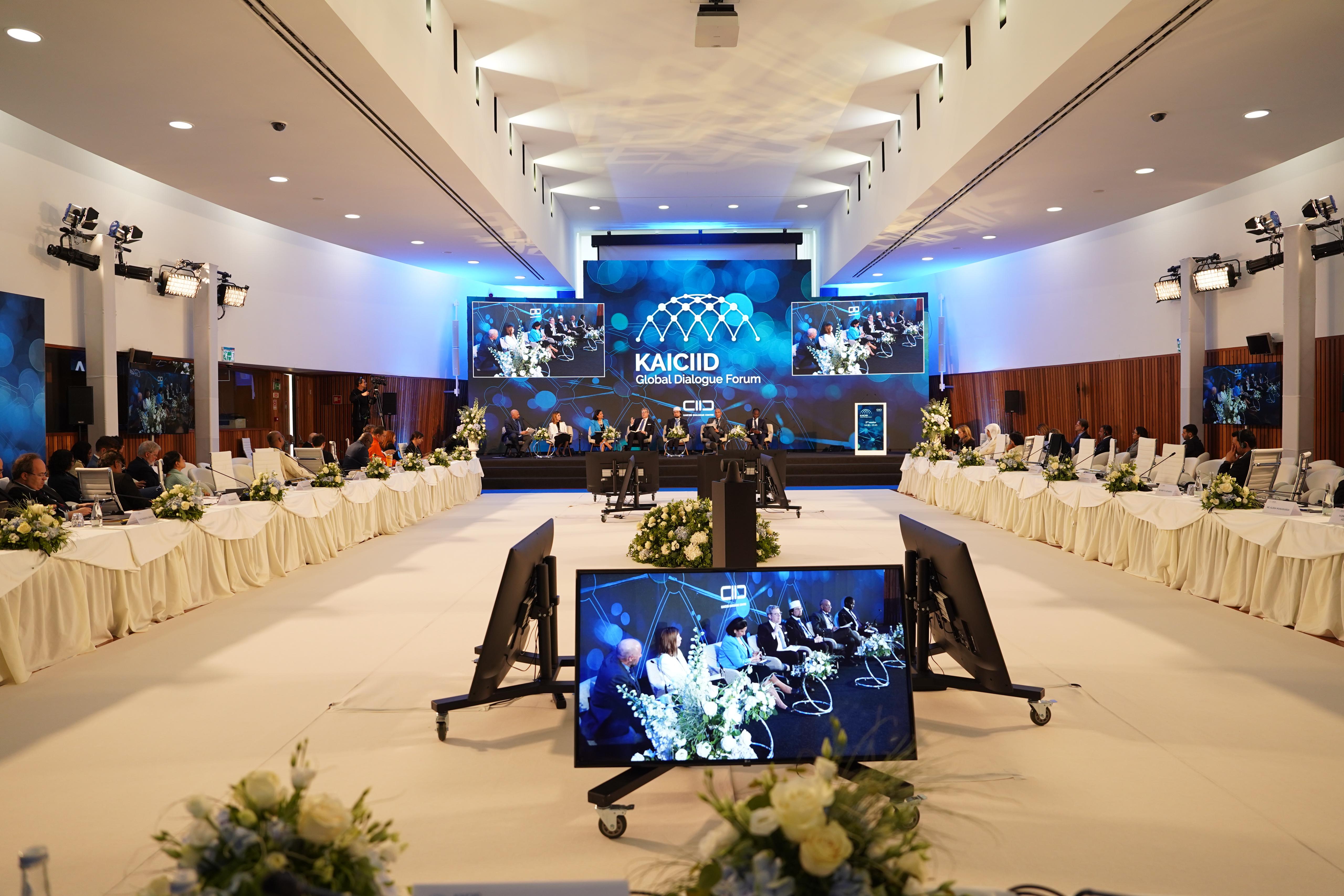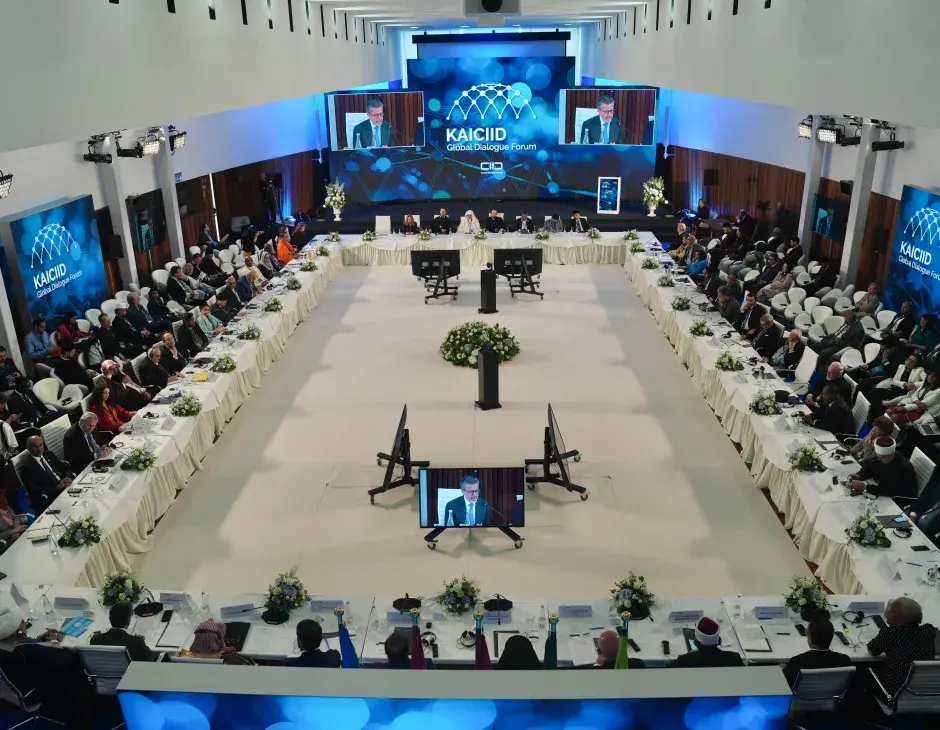The International Dialogue Centre - KAICIID kicked off its inaugural Global Dialogue Forum in Lisbon on Tuesday, May 15, which will explore the transformative power of dialogue in addressing some of the world's most pressing challenges. These include climate change, the continuation of human rights abuses and the highest number of violent conflicts since the Second World War.
The two-day forum scheduled for 15 and 16 May, marks a significant milestone in KAICIID's decade-long mission to harness dialogue as a catalyst for global change and peacebuilding. It has convened more than 150 participants including high-level religious leaders, current and former Heads of State, UN leaders and representatives from civil society and youth delegates.

`In these times of escalating conflicts and deepening global divisions, our gathering here in Lisbon represents not just a meeting, but a profound commitment to the dialogue that bridges divides. The inaugural KAICIID Global Dialogue Forum is a testament to our collective dedication to fostering peace through understanding and cooperation among diverse religions, regions, and cultural communities. Let us harness the spirit of collaboration that has brought us together to inspire sustained action and nurture the seeds of harmony and mutual respect. ` Dr. Zuhair Alharthi, Secretary General of the International Dialogue Centre – KAICIID said in his opening remarks.
Dialogue: An Essential, Not a Perquisite

The world is grappling with challenges that far exceed the capacity of any single state to manage, participants heard during the opening plenary. Traditional mechanisms of international cooperation are being stretched beyond their limits. Achieving global development agendas, such as UN Agenda 2030, requires more than just political will and financial investment; it calls for a transformation in the hearts and minds of individuals and communities around the globe.
To that end, the two-day forum will focus on three topics: Building Inclusive Cities, particularly in response to the influx of refugees from ongoing global conflicts, tackling climate change through Sacred Ecology and Promoting Peacebuilding And Conflict Resolution.
In his opening remarks, Heinz Fischer, the former President of Austria, highlighted the relevance of transformational dialogue against the backdrop of current violent conflicts, including wars in Ukraine and Gaza. "Transformational dialogue is particularly important at a time when we witness dramatic and heartbreaking situations around the world. It is of utmost relevance that we all — politicians, religious leaders, ordinary people — unite in working for peace, human rights and equality," Fischer said.
Augusto Santos Silva, the former Minister of Foreign Affairs for Portugal and the 15th President of the Assembly of the Portuguese Parlimaent echoed the critical role of dialogue in current global affairs. "In times of social turbulence, political polarisation and armed conflicts in many parts of the world, we must do all we can to rebuild trust and foster communication and dialogue between different regions, cultures and civilizations." He further noted that "the very foundation of dialogue has to be a clear commitment to consider that our differences enrich the world, and the world is our common responsibility."
Quelling the Rising Tide of Violent Conflicts
During the Forum, the rising tide of extremism and violent conflicts is expected to take centre stage, as well as the need to uphold human rights and dignity. Panelists will discuss the critical role interreligious dialogue plays in addressing these challenges. Religious leaders, recognised for their authority and trust within communities, are seen as key figures in bridging divides that fuel such conflicts.
In the opening plenary, Shawki Ibrahim Abdel-Karim Allam, the Grand Mufti of Egypt, spoke about the imperative of dialogue in contemporary society. "Our responsibility in promoting interfaith dialogue is not merely a moral commitment but a pressing necessity to ensure the unity of the human community's fabric and save future generations from falling into the clutches of extremism, hatred, violence and intolerance," he said.
The Transformational Power of Dialogue
Speakers further noted that hard-won alliances intended to support peace are under significant pressure, as both secular and religious stakeholders struggle to keep global leaders aligned with their commitment to agreed human rights principles.
Dialogue has the potential to alleviate many threats to lasting peace, including unresolved grievances and ongoing human rights abuses—particularly against minority groups, participants heard. Beyond mediating conflicts, dialogue also aids communities affected by mistrust and polarisation, helping them address challenges such as climate change and food insecurity, societal inequalities, and the integration of refugees into host communities.
Inviting the Voices of Marginalised Communities
The two-day Forum will also focus on how to use dialogue to bring marginalised perspectives to the policymaking table, including women and youth.
During the opening plenary, Graça Machel, former freedom fighter and Mozambique's first Minister of Education, provided a poignant example of how transformational dialogue has been implemented in her Africa. She recounted the significant role her late husband, Nelson Mandela, played in the 1996 Burundi Peace Negotiations that ended the prolonged civil war. `He opened the space for women to engage in the mediation process, leading to significant outcomes, including constitutional mandates for women’s representation in government, Machel explained.` She highlighted the ongoing impact of these initiatives, where thousands of women in Burundi now serve as mediators addressing issues ranging from domestic violence, land disputes and tensions arising from political violence. She also recounted the significant role she played during the Peace Negotiations in Kenya alongside former UN Secretary-General Kofi Anan and former President of Tanzania Ben Mkapa after the 2007 – 2008 Kenyan post-election violence, that ended the prolonged violence.
Expectation of the Forum

The outcomes of the Global Forum include a comprehensive strategy to address global peace and social cohesion issues, the creation of action plans to prioritise dialogue for inclusive development, and the development of joint programs aimed at strengthening the implementation of dialogue initiatives where they are most needed.
Additionally, participants will be asked to support a Transformational Dialogue Imperative—a broad-based ethical commitment aimed at enhancing and expanding dialogue through policies and practices worldwide. Commitments will include capacity development, technical assistance and other resources to enhance dialogue skills within organizations. Focus areas will include education, women-led peacebuilding, and environmental protection.
To learn more about the ongoing KAICIID Global Dialogue Forum: https://www.kaiciidglobalforum.org/


![The Role of Religious Leaders in Preventing Incitement that could lead to Atrocity Crimes [file:field-file-image-alt-text]](/sites/default/files/styles/project_image/public/img_4414_copy_2_0.jpg.webp?itok=Cq1-qCbE)
